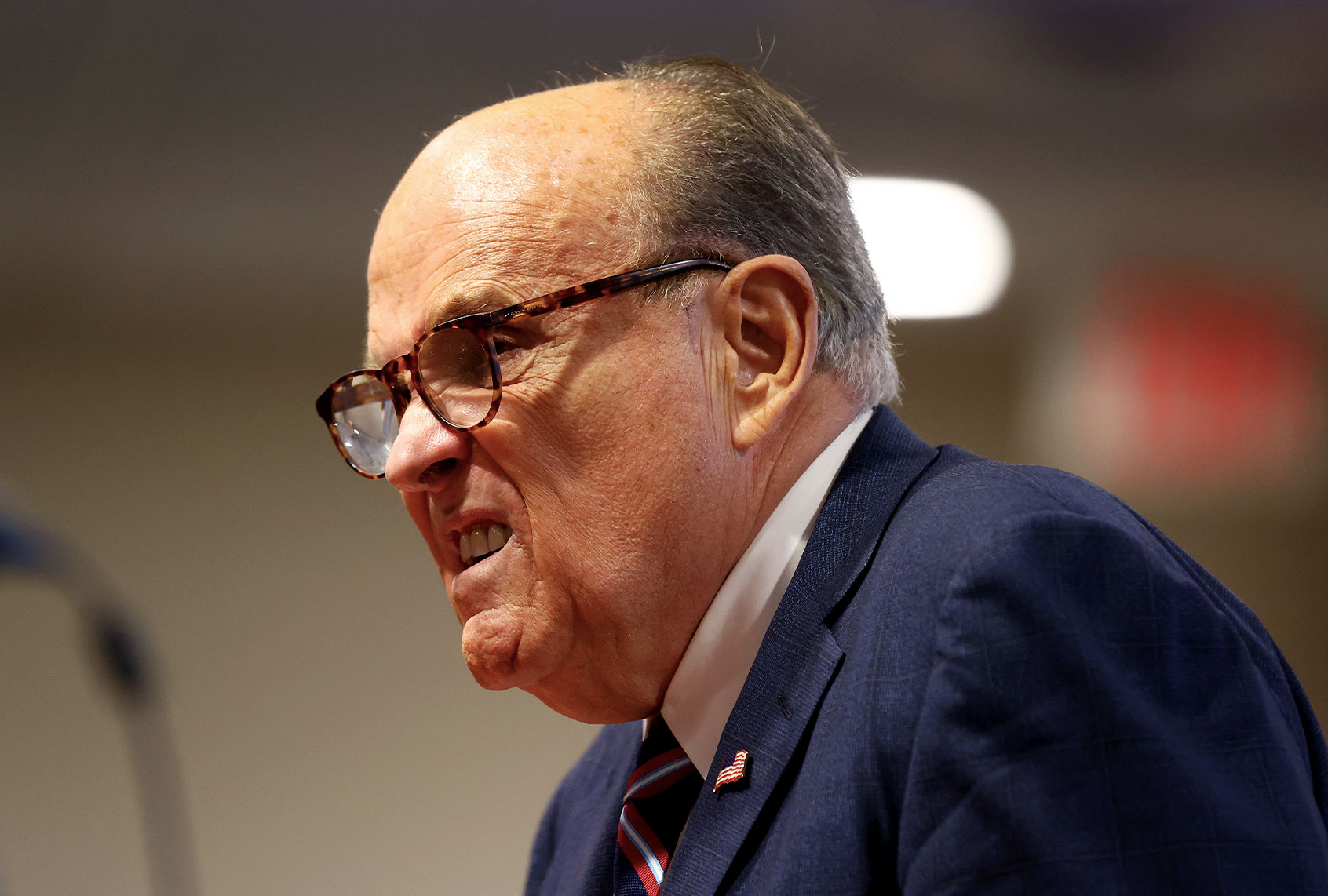The Arizona state legislature will shut down for the next week after Trump attorney Rudy Giuliani potentially exposed lawmakers to the coronavirus.
President Donald Trump announced on Twitter that Giuliani had tested positive for the virus on Sunday. The former New York mayor traveled to multiple states to pressure Republican lawmakers to help his bid to overturn the results of the election based on unfounded allegations of voter fraud. The 76-year-old was hospitalized at Georgetown University Medical Center after receiving his diagnosis, ABC News reported.
It is unclear when Giuliani first tested positive or when he was exposed. His son Andrew, a White House adviser, said he tested positive on Nov. 20. Christianné Allen, the communications director for the former mayor, also said she began quarantine on the same day. (Giuliani’s ill-fated press conference in which a dark goo dripped down his face took place one day earlier.)
A maskless Giuliani held a show hearing with 15 Arizona lawmakers at a Hyatt Regency hotel in Phoenix last Monday before privately meeting with several Republican legislators and leaders the following day, according to The Arizona Republic. Giuliani also traveled to Michigan and Georgia, potentially exposing other lawmakers.
A Michigan official said the legislature did not have plans to shut down but would conduct “normal contact tracing procedures in accordance with CDC guidelines to keep people safe.” Senate staffers in Georgia were instructed to work remotely until they were tested for the virus, according to WXIA.
The Arizona meeting was attended by U.S. Reps. Paul Gosar, R-Ariz., and Andy Biggs, R-Ariz., as well as about a half-dozen state senators and representatives. The following day,, Giuliani met with the Republican leaders of the state Senate and House. The Arizona Republican Party tweeted a photo of Giuliani and other attendees maskless and not social distancing at the meeting.
Learn their names:@AZDavidGowan@SylviaAllenAZ@SonnyBorrelli@MarkFinchem@Leo4AzHouse@BretRbrts
@KellyTownsend11@RepDavidCook@NancyBartoThe fight for our republic has only just begun! #ArizonaHearing pic.twitter.com/q9XAOqzKr6
— Republican Party of Arizona (@AZGOP) December 1, 2020
Trump’s campaign said in a statement that Giuliani had tested negative before traveling to the state and “did not experience any symptoms or test positive for COVID-19 until more than 48 hours after his return.” It is not uncommon for people infected with the virus to test negative early in the incubation period.
Trump’s team said no lawmakers nor members of the media were “on the contact tracing list.”
But Republican leaders said the entire state legislature would be closed this week “out of an abundance of caution,” according to the Republic.
State Sen. Martín Quezada, a Democrat, said the episode was “the epitome of COVID-19 irresponsibility.”
“You owe it to the very people who work in the Capitol buildings to be better than this,” he told his Republican colleagues.
“This is not negligence,” state Sen. Victoria Steele, a fellow Democrat, said on Twitter. “It is willful, deliberate, endangerment of others.”
Trump’s campaign has continued to push back on criticism. Legal adviser Jenna Ellis called closing the legislature “absolutely unnecessary” as she attempted to claim that Republican House Speaker Rusty Bowers was using “COVID as an EXCUSE” to not call a special legislative session to override his state’s voters.
After failing to show any evidence of widespread fraud or irregularities and being rejected by courts in every contested state, Trump’s legal team has turned to pressuring state Republican lawmakers to appoint pro-Trump electors who would subvert their state’s voters.
Several Republican state lawmakers said they still planned to hold a rally on Monday to “protect the vote.”
“It’s a rally to support the legislature calling for decertification of the election results,” state Rep. Bret Roberts tweeted.
But Republican leaders have said such a move would not only be improper but illegal.
“As a conservative Republican, I don’t like the results of the presidential election,” Bowers said in a statement. “I voted for President Trump and worked hard to re-elect him. But I cannot and will not entertain a suggestion that we violate current law to change the outcome of a certified election.”
Bowers said it would violate “the basic principles of republican government and the rule of law if we attempted to nullify the people’s vote based on unsupported theories of fraud.
Trump’s attempt to pressure Republicans to hold a special session to override their states’ votes was likewise rejected by Georgia Gov. Brian Kemp, a longtime Trump ally. Kemp and Lt. Gov. Geoff Duncan said in a statement that holding a special session “in order to select a separate slate of presidential electors is not an option that is allowed under state or federal law.”
“Any attempt by the legislature to retroactively change that process for the Nov. 3 election would be unconstitutional and immediately enjoined by the courts,” they said.
Former Trump attorney Sidney Powell even led a lawsuit seeking to decertify President-elect Joe Biden’s victory but the case was promptly rejected.
“With nothing but speculation and conjecture that votes for President Trump were destroyed, discarded or switched to votes for Vice President Biden, plaintiffs’ equal protection claim fails,” U.S. District Judge Linda Parker said in a ruling on Monday, adding that even if their allegations had merit, the “alleged injury does not entitle them to seek their requested remedy because the harm of having one’s vote invalidated or diluted is not remedied by denying millions of others their right to vote.”

